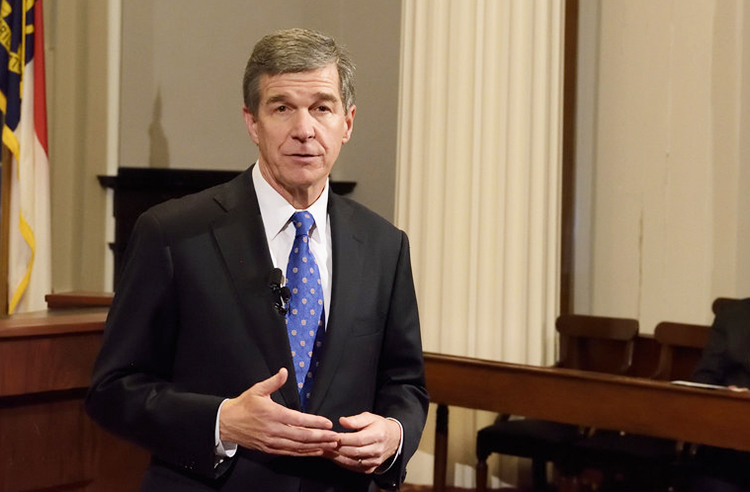
March 14. By Dave Yochum. Gov. Roy Cooper has ordered all K-12 public schools in North Carolina to close for a minimum of two weeks in response to COVID-19. The order also bans gatherings of more than 100 people. North Carolina currently has 23 people in 12 counties who have tested positive for COVID-19.
“We do not have the luxury of a wait-and-see approach. These are hard decisions but they are necessary so we can learn more about the virus,” Cooper said.
The question is whether two weeks are long enough to stop the spread of coronavirus.
According to new guidance from the Centers for Disease control, closing schools early in the spread of disease for a short time—two weeks, for example—will be “unlikely to stem the spread of disease or prevent impact on the health care system, while causing significant disruption for families, schools, and those who may be responding to COVID-19 outbreaks in health care settings.”
It may also increase impact on older adults who care for grandchildren.
There may be some impact of much longer closures—8 weeks to as much as 20 weeks—further into community spread, but that modeling also shows that other mitigation efforts like hand-washing and home isolation have more impact on both spread of disease and health-care measures.
Cooper’s Executive Order directs all public schools to close beginning this coming Monday, March 16 for at least two weeks.

CHEEK
Charlotte Mecklenburg Schools board member Rhonda Lennon Cheek said the CMS board and staff will continue working on plans to “make sure we keep our children and staff safe during this uncertain time.”
The Davidson mother of CMS students said parents—and all citizens—should remember this is a fluid situation and “we are moving forward with many things to remain flexible in the event of prolonged time out of school, including digital/home based learning, nutrition programs, providing social and emotion support services and much more.”
The two-week period allows time for North Carolina to further understand the impact of COVID-19 across the state and develop a plan for continued learning for students should a longer closure be needed.
Cooper made the decision in consultation with State Board of Education Chair Eric Davis, State Superintendent of Public Instruction Mark Johnson, and North Carolina Health and Human Services Secretary Mandy Cohen.
He has also created an Education and Nutrition Working Group to develop a plan to ensure that children and families are supported while schools are closed. The working group will focus on issues including nutrition, health, childcare access for critical health care and other front-line workers and learning support for children at home.
The Working Group will be co-chaired by Susan Gale Perry, Chief Deputy Secretary of NC DHHS and David Stegall, Ed.D, Deputy State Superintendent of Innovation at DPI, and will have representatives from DPI, NC DHHS, the State Board of Education, as well as other education, nutrition and childcare associations.
“I am starting up this new working group to ensure that children have enough food to eat, families have care in safe places for their young children, and student learning continues,” Cooper said.
In addition to closing schools, the Executive Order prohibits mass gatherings that bring together more than 100 people in a single room or space, such as an auditorium, stadium, arena, large conference room, meeting hall, theater, or other confined indoor or outdoor space, including parades, fairs and festivals. Violations of the order are punishable as a Class 2 misdemeanor.
The ban on gatherings does not include airports, bus and train stations, medical facilities, libraries, shopping malls and spaces where people may be in transit. Office environments, restaurants, factories, or retail or grocery stores are also excluded.
The CDC says special consideration must be given for health-care workers so that school closures do not impact their ability to work.





